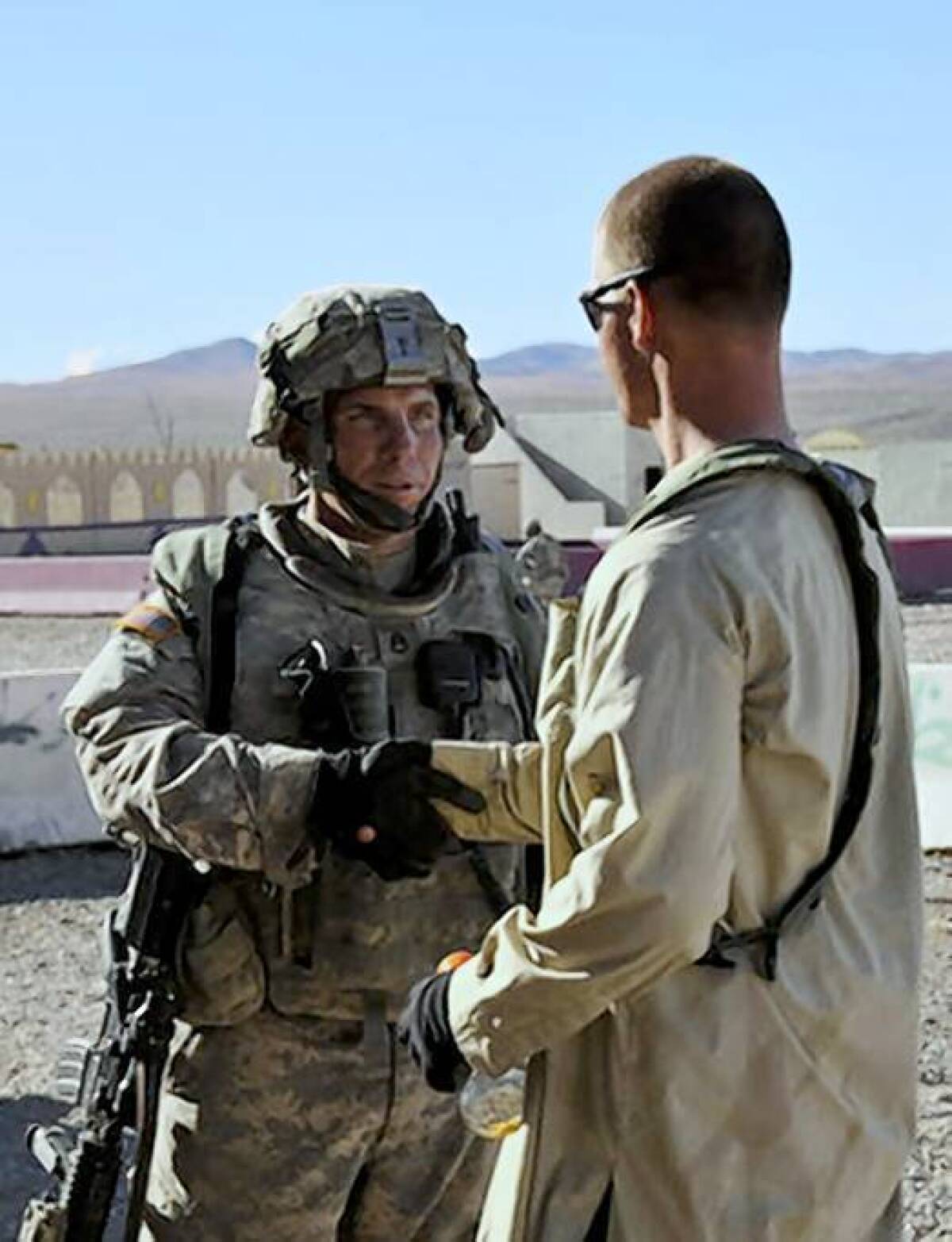Troops heard shots on night of Afghan massacre

- Share via
JOINT BASE LEWIS-McCHORD, Wash. — American troops heard sporadic gunfire coming from the Afghan village of Alkozai for more than half an hour but failed to act on it, learning later that at least four people were shot to death, allegedly by a U.S. Army staff sergeant, several soldiers testified Tuesday.
Two guards stationed on the roof of the operations center at Camp Belambay southwest of Kandahar said they used thermal imaging in an attempt to trace the gunfire and shot up a flare to illuminate the empty farm fields, at which point the sound of the shooting stopped.
“We heard first one or two, then another one or two,” Pfc. Derek Guinn testified at a preliminary hearing for Staff Sgt. Robert Bales, who is accused of killing 16 Afghan civilians and wounding six others in attacks that night on the villages of Alkozai and Najiban.
“I’d never heard gunfire before, in my time. That was my first time hearing it at night,” Guinn said. “The shots weren’t coming toward us, so we didn’t panic.”
He and the other guard reported it to the operations center, who advised them to keep an eye on it. The timing — beginning about 1:15 a.m. — is about when prosecutors say Bales, 39, stole out of the camp, walked about half a mile north to Alkozai and opened fire. Villagers told U.S. authorities that four people were killed and six others were wounded.
The Article 32 hearing on Bales is intended to determine whether there is sufficient evidence to send the Lake Tapps, Wash., resident and veteran of four combat deployments to a court-martial on charges of premeditated murder.
The day’s testimony also provided the first suggestion that some U.S. troops suspected that Bales, if he left the base, may not have been acting entirely alone.
Their concerns emerged after Guinn was approached about 3 a.m. by an interpreter working with Afghan army guards at the U.S. outpost who told him they had seen not one but two U.S. troops returning to the base that night, after which one American soldier left again.
Army prosecutors have said that Bales was seen leaving the base by an Afghan guard sometime after midnight, and was spotted leaving again a few hours later. They believe Bales traveled first to Alkozai, then made a second foray to Najiban, where 12 people were shot to death.
Guinn alerted two other soldiers and they began wondering whether one of Bales’ friends had been outside the camp with him earlier that night. They approached Army criminal investigators with their concerns.
They identified one soldier who they said had been drinking and inexplicably appeared to have freshly showered and shaved just as Bales was reported missing.
“We talked between us and there were kind of suspicions that someone else might have been involved,” said Cpl. David Wofford, one of the three who reported their concerns. “Your brain starts working, maybe he had blood on his hair … and went so far as to shave it off.”
But Army prosecutors quickly got Wofford to admit that he was speculating. Though Afghan villagers have often said they believe there was more than one gunman, U.S. Army officials have repeatedly discounted that possibility.
The day also included testimony that before Bales was flown off the base, he told other soldiers they would be grateful to him when fighting season starts.
“He said, ‘You guys are going to thank me, come June,’” Sgt. 1st Class James Stillwell testified.
By June, Stillwell said, he assumed Bales was referring to the onset of warm weather in Afghanistan, which normally marks the resumption of heavy-duty fighting after a winter lull.
More to Read
Sign up for Essential California
The most important California stories and recommendations in your inbox every morning.
You may occasionally receive promotional content from the Los Angeles Times.










